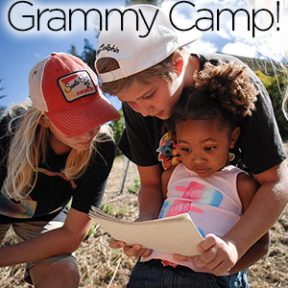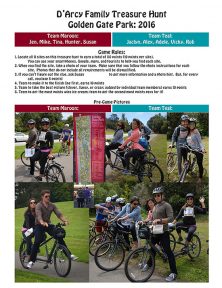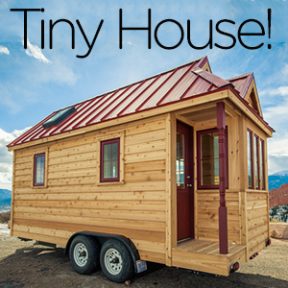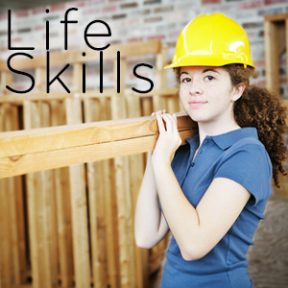 Thanks to Logan Conover, over 1,000 lbs of carbon did NOT go into the atmosphere over the past 3 months.
Thanks to Logan Conover, over 1,000 lbs of carbon did NOT go into the atmosphere over the past 3 months.
Kudos to Logan! His campaign, WHEN NOT, IF, encourages people to stop driving one day each month to reduce the CO2 that’s released by driving cars. He started with the Santa Cruz County area, and now he’s now reaching out to people across America.
Please share this so we can help Logan reach his new goal of 10,000 lbs by the end of the year.
Remember to NOT drive tomorrow, July 23rd, and go to www.WhenNotIf.org to enter your stats so you can be part of this climate-changing movement!
 Thanks to Logan Conover, over 1,000 lbs of carbon did NOT go into the atmosphere over the past 3 months.
Thanks to Logan Conover, over 1,000 lbs of carbon did NOT go into the atmosphere over the past 3 months.
Kudos to Logan! His campaign, WHEN NOT, IF, encourages people to stop driving one day each month to reduce the CO2 that’s released by driving cars. He started with the Santa Cruz County area, and now he’s now reaching out to people across America.
Please share this so we can help Logan reach his new goal of 10,000 lbs by the end of the year.
Remember to NOT drive tomorrow, July 23rd, and go to www.WhenNotIf.org to enter your stats so you can be part of this climate-changing movement!
 Grammy Camp is a great way to get the kids together and make memories that will last a lifetime!
Grammy Camp is a great way to get the kids together and make memories that will last a lifetime!
Okay, I’m not a grammy but my good friend Julie Monroe is, and she hosts Grammy Camp for her lucky grandkids each summer. Her grandkids come from her stepson, ex-inlaw, ex-inlaws new husband, adopted child, and a good friend – you know, the all-American family — so it’s quite an eclectic group of campers. By hosting these Granny Camps each year since 2006, she’s created a wonderful reason for all of the grandkids to communicate together while planning their activities. It’s really brilliant.
In the past, the kids have played at the beach (she lives on Seabright!), explored redwood forests, and done the Santa Cruz Beach Boardwalk. Living in Santa Cruz is a big bonus! They also cook together, roast marshmallows at a beach bonfire, or stayed in their jammies for a “down day” to just hang out. Their favorite is going to the Boardwalk and getting wristbands so they can go on every ride – all day long! Julie’s favorite is hanging out with them as they wind down at the end of the day because that’s the time they open up and share their thoughts and feelings. On their drive back home at the end of Grammy Camp, they talk about and make plans for the next Grammy Camp.
This year, Julie also brought them to Merit Academy to learn about aquaponics, permaculture, beehives, and water catchment systems. Their grandpa is a key player in the beehive systems so they have heard all kinds of stories about our adventures in beekeeping. While they were here, they did a treasure hunt on our 2 acres to make it even more fun.
For those with grandkids who want to do Grammy Camps, Julie suggests that choosing activities that the kids will enjoy, but not filling up the days with too many activities. By allowing some down time, there’ll be more opportunities for getting to know one another. And, after all, isn’t that what this is all about? Creating memories and reconnecting with one another. Kudos to Julie and her Grammy Camps!
 This is a Letter to the Editor of the Santa Cruz Sentinel that was written by Laina Farhat-Holzman on July 16th, 2016. I am posting it here because as an educator, I believe that words have meaning, and that we should use them with care.
This is a Letter to the Editor of the Santa Cruz Sentinel that was written by Laina Farhat-Holzman on July 16th, 2016. I am posting it here because as an educator, I believe that words have meaning, and that we should use them with care.
Listening to Donald Trump’s latest speech (introducing his VP candidate), I was struck by how many times he used the words “incredible” and “unbelievable.” In context, he meant “terrific” or “wonderful.” But as a Freudian Slip, he was telling us that everything he was saying was “not credible” and “not to be believed.”
Also, repeating the mantra: “to tell the truth,” and “in all honesty” really means “I don’t usually tell the truth” and “I am less than honest.”
Believe the sub-text.
 I used to think it was just me. I need absolute silence to think and to center myself. That’s why I get to my office before staff and clients arrive so I can take care of important tasks. The silence gives me peace and helps me regenerate so I can be fully energized all day. I just read about a study by Duke University’s Imke Kirste who found that 2 hours of silence per day prompted cell development in the hippocampus region of the brain. So what’s all this chatter about silence?
I used to think it was just me. I need absolute silence to think and to center myself. That’s why I get to my office before staff and clients arrive so I can take care of important tasks. The silence gives me peace and helps me regenerate so I can be fully energized all day. I just read about a study by Duke University’s Imke Kirste who found that 2 hours of silence per day prompted cell development in the hippocampus region of the brain. So what’s all this chatter about silence?
Back in 1859, Florence Nightingale (British nurse and social reformer) wrote that “Unnecessary noise is the most cruel absence of care that can be inflicted on sick or well.” Every sound can be a source of alarm, distress, and sleep deprivation for recovering patients. And, “sudden noises” can cause death among sick children. Recent research actually supports Nightingale’s zealous claims. Epidemiologists discovered correlations between high blood pressure and chronic noise sources like highways and airports. People who live in consistently loud environments often have elevated levels of stress hormones (cortisol, adrenaline, and noradrenaline).
According to the European Heart Journal, long-term exposure to high levels of noise dramatically boosts heart risk. Men exposed to prolonged noise have a 50% higher risk of having a heart attack, and in women, the risk is much greater, almost 300%! And the psychological strain experienced by people exposed to constant noise includes distraction, lack of focus, and slower mental processes. That might explain why so many children, teens, and adults have difficulty staying on task. Hmmm.
Kirste even suggests that silence may be used in therapeutic treatment for dementia and depression. Because both dementia and depression are associated with decreasing rates of neurogenesis in the hippocampus, maybe a few hours of silence can help in this realm too. Could the over stimulation and constant noise from watching TV from the crack of dawn until they pass out at the end of the day be the cause of depression? I know people have the TV on 24/7.
So, it might help you, your spouse, and your children if you created regular periods of silence in your home. Turn off the TVs, video games, and music for 2 hours each day. You might need to get noise-cancelling headphones if you have ambient noise issues. If creating silence in your home isn’t possible, then take regular walks in areas away from traffic. Choose restaurants that are quiet and have a calm setting. In our very busy social lives, you’ll probably have to schedule time for silence.
Sounds like silence can help heal the mind and body.
[Source 1]
[Source 2]
It makes me crazy that nobody uses commas anymore! Commas help clarify communication, and without them, we could be sending the wrong message.
I love this comic strip below. Pass this along to kids who don’t think punctuation and grammar matters!

 Over the last 11 years, we’ve hosted the D’Arcy Treasure Hunt in Golden Gate Park. It has been a great way to discover the many treasures hidden in San Francisco’s Golden Gate Park.
Over the last 11 years, we’ve hosted the D’Arcy Treasure Hunt in Golden Gate Park. It has been a great way to discover the many treasures hidden in San Francisco’s Golden Gate Park.
On bikes, we spend 4-5 hours finding Shakespeare’s gardens, bison, and even windmills!
We’re planning another Treasure Hunt in Golden Gate Park this weekend and it’s going to be epic! Going to use our GoPro.
If you’d like to join us, email me at info@meritworld.com!

 With all the violent outbreaks being blamed on gun control, mental health, religious interests, black lives matter, or other scapegoats, I believe that in our harried lifestyles because we’re so busy keeping up with the Joneses that we’ve lost the vital skill of communication. When you think about the root of most problems, it’s usually something that can be solved with an open discussion. Granted, getting both parties to agree to an open discussion may ultimately be the downfall, but nonetheless, it’s important to note that the communication piece is really the culprit.
Look at the Black Lives Matter and the police brutality problem that has plagued our lives over the past few years. We’re all struggling to see the issues from both perspectives. Yes, there are a ridiculous number of young black men and boys who are murdered simply because they’re black. Yes, if they were white, they probably wouldn’t be profiled and live with constant fear that they may be the next victim. And yes, a few white cops have killed innocent black men and boys. And yes, police brutality stems from a few bad cops who keep working in a broken system.
But, we can fix this system. We need to communicate with our adversaries. Yup, not easy to do but here’s the conversation that needs to happen. If you’re black (or whatever color you are), assume that cops (teachers, bank tellers, or anyone) don’t know you. So be congenial. Why? It’s like paying it forward. If you greet and interact with others with respect, there’s a really good chance they’ll do the same to you. Don’t assume that they’re going to mistreat you because if you do, your vibe will make them put up their guard and your interaction will undoubtedly be negative.
Let me give you an example. I realize that I am not black, but I am Asian, and not everyone likes Asians, right? One of my Asian colleagues told me that she’s tired of being treated like a second-class citizen when she goes to banks and stores. I was so surprised by her comment that I inquired further. I wanted to know just how she was mistreated and more about the circumstances around it because I didn’t feel the same way. As she described her recent experience with a bank teller, it became clear to me what was happening. She had already put up her guard and was ready for the teller to be confrontational. She created the energy that was off-putting to the teller. So when she stepped up to the teller window, the teller reacted and responded to her negative energy by doing the same.
When I told my colleague that I’ve never experienced prejudice here, she didn’t believe me. We actually bank at the same bank and I have never been mistreated in 30 years! So I stepped out of my comfort zone and told her why I believed she was having trouble, and recommended specific things for her to do to change this dynamic. This wasn’t easy because she was so set in her ways and actually not wanting to believe that others weren’t prejudiced against her because she was Asian. Once I got her to see that they were reacting to her negative predisposition, I started to see her come around. First, I showed her that her natural relaxed expression looked like a frown. Not good. That would make anyone uneasy. So I told her that she needs to smile – consciously smile – before interacting with anyone. Next, she worked on saying something nice to open up a conversation that worked to everyone’s benefit.
I know that there is a big difference between blacks and Asians in the eyes of law enforcement, and I’m not so naïve to think that a little smile and pleasantries will change the world. But these tips have helped me and may help others.
Now let’s look at the police brutality piece. Cops have a really difficult and dangerous job. Think about it. They go into the worst neighborhoods, go out on calls without knowing what to expect, and they have to make split-second life threatening decisions. When they make a mistake or a lapse in judgment, they’re scrutinized. But we need them. Right? Imagine a society without law enforcement? But I recognize that we do have a problem. There are a few bad cops who bring to their occupation their prejudice or power issues. Undoubtedly, these cops need to be removed from their posts and prosecuted if they’ve broken laws. All cops know who these weak links are – the ones who are in it to wield guns and drive fast cars – the ones whose personal baggage interferes with their ability to fulfill their jobs. Cops should be able to communicate their concerns about fellow officers to minimize their department’s liability without repercussions of being a whistle blower. The Chief of Police and higher ranking officers should investigate and counsel cops who might pose future risks. Again, it comes down to communicating concerns BEFORE they become our next headline news.
In addition to removing the bad cops from the beat, there are a couple of things police officers can do to minimize these terrible altercations. First, they can shoot to disable and not to kill. I realize that this is a very unpopular idea amongst cops because they need to protect themselves, and others, should the person start killing others. But hear me out – if an unidentified person (maybe even someone wearing a hoodie) is walking down the street, or even running, is it necessary to shoot 10, 15, or more bullets into his/her back? Protection doesn’t seem to be an issue if they’re shooting at the person’s back, right? If it’s concern about them getting away, wouldn’t shooting them in the leg or abdomen stop them in their tracks? Of course there are definitely times when officers want to take out (kill) a perpetrator, and they should. Still not sure that more than one bullet needs to be fired.
Second, when a police officer pulls over a driver in a vehicle, address them with respect, and a smile (okay, maybe I’m pushing it here). Just like the recommendation I made for the people of color above, cops could also create better interactions if they demonstrated respectful. I realize that they risk their lives every time they approach a vehicle – I wouldn’t want to do that! The driver could be holding a gun or something worse. But what if cops asked questions to improve communication and assessment? By learning more about the person in question, we might avoid unnecessary bloodshed and violence.
It all comes down to communicating with others. Don’t assume everyone knows what you’re thinking or understands your situation. Make the first move by smiling and being friendly; it’s certainly better than being antagonist or negative. So let’s work together to improve communication and stop unnecessary violence.
With all the violent outbreaks being blamed on gun control, mental health, religious interests, black lives matter, or other scapegoats, I believe that in our harried lifestyles because we’re so busy keeping up with the Joneses that we’ve lost the vital skill of communication. When you think about the root of most problems, it’s usually something that can be solved with an open discussion. Granted, getting both parties to agree to an open discussion may ultimately be the downfall, but nonetheless, it’s important to note that the communication piece is really the culprit.
Look at the Black Lives Matter and the police brutality problem that has plagued our lives over the past few years. We’re all struggling to see the issues from both perspectives. Yes, there are a ridiculous number of young black men and boys who are murdered simply because they’re black. Yes, if they were white, they probably wouldn’t be profiled and live with constant fear that they may be the next victim. And yes, a few white cops have killed innocent black men and boys. And yes, police brutality stems from a few bad cops who keep working in a broken system.
But, we can fix this system. We need to communicate with our adversaries. Yup, not easy to do but here’s the conversation that needs to happen. If you’re black (or whatever color you are), assume that cops (teachers, bank tellers, or anyone) don’t know you. So be congenial. Why? It’s like paying it forward. If you greet and interact with others with respect, there’s a really good chance they’ll do the same to you. Don’t assume that they’re going to mistreat you because if you do, your vibe will make them put up their guard and your interaction will undoubtedly be negative.
Let me give you an example. I realize that I am not black, but I am Asian, and not everyone likes Asians, right? One of my Asian colleagues told me that she’s tired of being treated like a second-class citizen when she goes to banks and stores. I was so surprised by her comment that I inquired further. I wanted to know just how she was mistreated and more about the circumstances around it because I didn’t feel the same way. As she described her recent experience with a bank teller, it became clear to me what was happening. She had already put up her guard and was ready for the teller to be confrontational. She created the energy that was off-putting to the teller. So when she stepped up to the teller window, the teller reacted and responded to her negative energy by doing the same.
When I told my colleague that I’ve never experienced prejudice here, she didn’t believe me. We actually bank at the same bank and I have never been mistreated in 30 years! So I stepped out of my comfort zone and told her why I believed she was having trouble, and recommended specific things for her to do to change this dynamic. This wasn’t easy because she was so set in her ways and actually not wanting to believe that others weren’t prejudiced against her because she was Asian. Once I got her to see that they were reacting to her negative predisposition, I started to see her come around. First, I showed her that her natural relaxed expression looked like a frown. Not good. That would make anyone uneasy. So I told her that she needs to smile – consciously smile – before interacting with anyone. Next, she worked on saying something nice to open up a conversation that worked to everyone’s benefit.
I know that there is a big difference between blacks and Asians in the eyes of law enforcement, and I’m not so naïve to think that a little smile and pleasantries will change the world. But these tips have helped me and may help others.
Now let’s look at the police brutality piece. Cops have a really difficult and dangerous job. Think about it. They go into the worst neighborhoods, go out on calls without knowing what to expect, and they have to make split-second life threatening decisions. When they make a mistake or a lapse in judgment, they’re scrutinized. But we need them. Right? Imagine a society without law enforcement? But I recognize that we do have a problem. There are a few bad cops who bring to their occupation their prejudice or power issues. Undoubtedly, these cops need to be removed from their posts and prosecuted if they’ve broken laws. All cops know who these weak links are – the ones who are in it to wield guns and drive fast cars – the ones whose personal baggage interferes with their ability to fulfill their jobs. Cops should be able to communicate their concerns about fellow officers to minimize their department’s liability without repercussions of being a whistle blower. The Chief of Police and higher ranking officers should investigate and counsel cops who might pose future risks. Again, it comes down to communicating concerns BEFORE they become our next headline news.
In addition to removing the bad cops from the beat, there are a couple of things police officers can do to minimize these terrible altercations. First, they can shoot to disable and not to kill. I realize that this is a very unpopular idea amongst cops because they need to protect themselves, and others, should the person start killing others. But hear me out – if an unidentified person (maybe even someone wearing a hoodie) is walking down the street, or even running, is it necessary to shoot 10, 15, or more bullets into his/her back? Protection doesn’t seem to be an issue if they’re shooting at the person’s back, right? If it’s concern about them getting away, wouldn’t shooting them in the leg or abdomen stop them in their tracks? Of course there are definitely times when officers want to take out (kill) a perpetrator, and they should. Still not sure that more than one bullet needs to be fired.
Second, when a police officer pulls over a driver in a vehicle, address them with respect, and a smile (okay, maybe I’m pushing it here). Just like the recommendation I made for the people of color above, cops could also create better interactions if they demonstrated respectful. I realize that they risk their lives every time they approach a vehicle – I wouldn’t want to do that! The driver could be holding a gun or something worse. But what if cops asked questions to improve communication and assessment? By learning more about the person in question, we might avoid unnecessary bloodshed and violence.
It all comes down to communicating with others. Don’t assume everyone knows what you’re thinking or understands your situation. Make the first move by smiling and being friendly; it’s certainly better than being antagonist or negative. So let’s work together to improve communication and stop unnecessary violence.
 Everybody is abuzz about tiny houses, and one of my students, Will Eklund, is building a tiny house this summer!
Everybody is abuzz about tiny houses, and one of my students, Will Eklund, is building a tiny house this summer!
He laid out building plans for 4 months using a CAD program where he learned all about building codes and drafting. After much research about building permits and restrictions for tiny houses, he decided to build a Tumbleweed tiny house because it’s built on a trailer and doesn’t require cumbersome permits. After all, it’s a moving house and not a stationary building. The Tumbleweed tiny houses meet recreational vehicle (RV) requirements and they offer building plans.
Will spent about 3 months putting together his budget. Using the materials lists that came with the plans, he meticulously organized all of the materials he would need for this project. This was a huge learning curve for Will because he had no experience doing any construction or building of any kind. He is a math kid who loves problem solving and engineering. The idea of building a tiny house after learning how to make building plans was just the natural progression. He was clueless about the many acronyms and slang used in the building industry. Who knew that “RO” meant rough opening?
Will and I got educated by going to San Lorenzo Lumber, Riverside Lighting, and other stores to see what the many materials on the list looked like. Mario, George, and Craig at San Lorenzo Lumber showed us what we needed and educated us. Brian at Riverside Lighting showed us all of our options for our electrical and propane materials. Seeing the building materials helped Will understand how it was going to come together. We also watched a 6-hour “how to” video on building tiny houses. Will ordered all of the materials 2 weeks ago, and with each step he was more and more psyched!
Finally, Will received a custom-built trailer made just for the Tumbleweed tiny house last week. He recruited several friends to help him install the floor insulation and subfloor. We recruited my good friend Cliff Bixler to mentor Will. They plan to frame the tiny house this week. I’m secretly really envious of Will because this has been MY DREAM forever!
Stay tuned to see Will build his tiny house!

 So many kids are graduating from high school, and many are heading off to college, without basic life skills. Rather than blame the schools, set up a plan to give your kids life skills this summer. You can teach them yourself or collaborate with other families to combine resources and talent.
So many kids are graduating from high school, and many are heading off to college, without basic life skills. Rather than blame the schools, set up a plan to give your kids life skills this summer. You can teach them yourself or collaborate with other families to combine resources and talent.
Here are 6 easy tips to get your kids on board to learn these life skills now, so they’ll survive in the world without you when they become adults.
#1: Banking
Open a savings account for your child today. Have them deposit money earned doing chores or odd jobs. Give them the opportunity to learn how to save money and watch their little nest egg grow. When bank statements arrive, show them how to read them and encourage the kids to save birthday and holiday cash in their own bank accounts. For tweens and teens, set up a checking account with a debit card so they can learn to manage their expenses. Give them funds for clothes and school supplies so they learn how to shop for deals and make smart purchases.
#2: Cooking
Have your child prepare one meal for the family each week. You can start them as young as 5 years old, and they’ll love it. Show them how to search for recipes online and prepare a grocery list of ingredients they’ll need for their meal. Start with simple meals like roast chicken, baked potato, and carrot sticks. Then help them select an easy recipe for one of their favorite meals. Even if they make the same meal each week, they’ll be proud of themselves for having the wherewithal to serve dinner to the entire family.
#3: Cleaning
Even if you have a fulltime housekeeper, make your children clean their own rooms. Learning how to dust, vacuum, and change sheets is something that everyone will need to do. Besides, they’ll appreciate a clean house and actually notice the difference when they start cleaning on their own. Create a schedule for weekly cleaning to teach them the discipline of doing regular chores.
#4: Sewing
When high schools stopped offering home economics classes a few decades ago, we created a generation of young people who can’t sew buttons, fix zippers, or hem pants. I’ve seen kids duct tape hemlines rather than sew them. Seriously. Learning how to thread a sewing machine, cut patterns, and follow sewing instructions is empowering. Even if they might not be the next Vera Wang, just knowing how to bring in or hem pants is a skill they’ll be able to use forever.
#5: Building
I remember when my friend called me frantically looking for a plumber because her surgeon husband tried to fix a leaking toilet and water was flooding her bathroom. Where does one learn how to fix toilets? Give your child the opportunity to be handy. How? Have your child intern or work with a building contractor one summer. They’ll learn all about electrical wiring, plumbing, and framing, and they’ll learn how to use power tools. Teens could build tiny houses where they learn all the skills to build a house but on a very small scale. I’ll blog about my 17-year old student who just started building a tiny house last week.
For younger kids, I’ve written curriculum for How Things Work that Merit Academy 4th graders took for one year. They took apart TV sets, microwaves, sewing machines, computers, and more. By the end of the year they were curious about how everything works!
#6: Food
Have your kids start a veggie garden this summer. Buy plants in 4” pots and transplant them into larger pots or a garden bed. Teach them about the nutrients that plants need and have them weed and water their gardens every day. As they grow their own veggies, celebrate by having salad parties. Even picky eaters try veggies that they grow themselves. Order fruit trees now and plant them in the fall. Harvesting fresh fruit is a glorious experience.
Teaching your children life skills can be fun. Lay out your long-term plans to make sure they all have the opportunity to be self-sufficient and competent. This may be one of the most important things you do in raising your children.



















